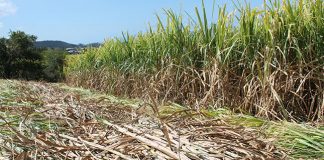Nonetheless, several serious concerns remained for the agricultural sector. Speaking at a business breakfast for farmers at Agri Mega Week in Bredasdorp recently, Marais said that a big worry was the possibility of both the Eurozone and the US experiencing a double-dip recession. “The economic future of the European Union countries seems highly uncertain. In addition, we cannot eliminate the possibility of a second, full-blown recession in the US.
“If a second recession does occur, the expected larger demand for agricultural financing will be postponed indefinitely,” he said.
Another concern was rapid agricultural production cost inflation. Marais said that farmers should prepare themselves for major cost increases across various inputs, adding that it was very unlikely that the price of fuel, electricity and fertiliser would follow a downward trend in the short term.
Other concerns he highlighted were the pressure farmers would face due to international competition and imports, as well as public resistance to artificially high food prices. Marais said it was important to inform consumers about what farmers earned for their produce. People objecting to high prices tend to point a finger at farmers, yet the farmer’s share of the final retail price was often small.
Marais concluded by referring to political concerns, saying that when a government did not fully support the agricultural sector of a country, that sector was sure to suffer. “I am referring specifically to support in research, training, infrastructure, market promotion, disaster assistance and effective tariffs,” he said. Marais added that the government’s objectives for agriculture and rural development would not offer any salvation for commercial farmers.
“The minister of finance recently announced plans to build the first new large dam in more than 25 years in the Eastern Cape. This is a step in the right direction but more needs to be done to protect scarce water resources,” said Marais. He said that another major dam was urgently needed in the Orange River catchment, and added that irrigation farmers should be prepared to pay much more for water in the near future.
In the face of growing international competition and local government’s lack of enthusiasm to accommodate the commercial agricultural sector in policy decisions, farmers would have to increase productivity by pursuing economies of scale, Marais said.












